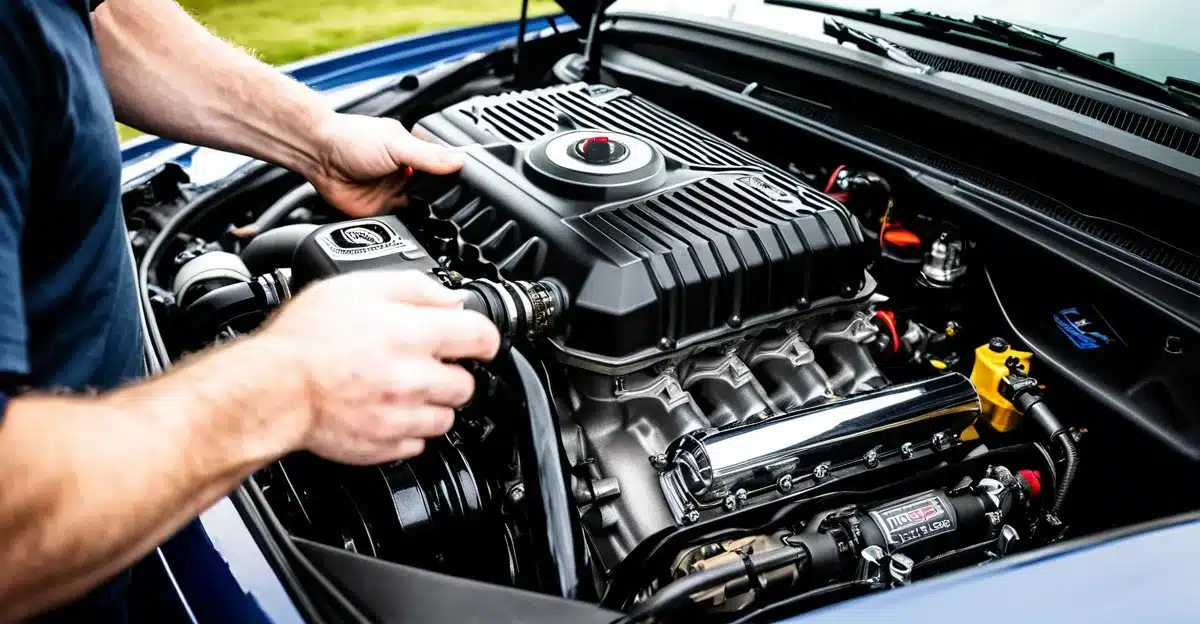Understanding Engine Torque and Its Role in Performance
Delving into the foundation of vehicle power
Engine torque explained is crucial for understanding how a car delivers power. Torque refers to the twisting force the engine generates, measured in Newton-meters (Nm). Unlike horsepower, which represents the rate at which work is done, torque indicates the engine’s capacity to perform work at any moment.
In parallel : Revealed: the real costs of owning high-mileage used cars in the uk – a comprehensive guide
The importance of torque lies in its direct influence on vehicle acceleration and driveability. Higher torque provides stronger pulling power, especially at lower engine speeds, enabling quicker starts and better towing capability. This is why torque figures are critical when evaluating how responsive and agile a car feels on the road.
For UK car enthusiasts, car performance metrics like torque are essential in achieving common goals such as fast acceleration or smooth overtaking. Many drivers prioritize torque for city driving, where low-end power improves everyday handling. Understanding torque alongside horsepower offers a more complete picture of a vehicle’s performance potential.
Additional reading : Mastering uk car electric window repairs: top diy diagnosis and repair tips
Methods and Tools for Engine Torque Testing
When exploring torque testing methods, professionals often rely on dynamometer testing due to its precision and reliability. A dynamometer is an advanced device that measures engine torque by simulating real driving loads, providing accurate and consistent measurements essential for performance assessment and tuning. This method is preferred in automotive workshops as it reflects true engine behavior under load.
For DIY enthusiasts and mechanics in the UK, several torque measuring tools UK are accessible and efficient. Handheld torque wrenches equipped with digital sensors offer practical solutions for on-the-spot torque measurement. These tools are calibrated to ensure accurate readings, helping users avoid over-tightening or under-tightening, which can damage engine components.
Additional handheld sensors designed for engine testing can be connected to diagnostic equipment, giving real-time torque data. These tools combine affordability and effectiveness, making torque testing more accessible beyond professional environments. Choosing the right tool depends on the required accuracy, budget, and testing environment, but both dynamometer testing and handheld torque measuring tools UK serve valuable roles in comprehensive torque evaluation.
UK Regulations and Best Practices for Engine Torque Testing
Understanding UK car modification laws is crucial when performing engine torque testing to ensure compliance and maintain vehicle safety. The UK legal framework mandates that any modifications, including torque adjustments, must not compromise roadworthiness or violate MOT requirements. During the MOT, vehicles undergo checks that could be influenced by changes affecting engine performance or emissions.
Industry standards highlight the importance of conducting engine torque tests in controlled environments, using calibrated dynamometers to guarantee precise measurements. These testing best practices help avoid inaccurate readings that could lead to regulatory issues or unsafe tuning outcomes. Professionals recommend documenting all modifications and test results thoroughly, which aids during MOT inspections and potential audits.
To remain compliant, technicians should follow procedures such as verifying torque output against manufacturer specifications and ensuring that any software updates or mechanical adjustments meet legal emission controls. Proper risk assessments and safety protocols during testing also minimize hazards. Adhering to these best practices supports not only regulatory adherence but also enhances consistency and reliability in engine performance assessments, fostering both safety and legality on UK roads.
Step-by-Step Guide to DIY Engine Torque Testing
Simple, Accurate, and Practical
Before you begin your DIY torque testing, gather essential equipment like a reliable torque wrench, engine datasheets, and safety gear including gloves and goggles. These tools ensure accuracy and protect you during the procedure.
To test engine torque at home, first warm the engine to operating temperature for consistent readings. Then, secure the engine according to the manufacturer’s guidelines. Attach the torque wrench to the crankshaft or output shaft bolt. Apply force steadily and note the peak torque reading on the wrench.
If unexpected values appear, troubleshooting involves rechecking equipment calibration and ensuring no engine modifications affect the output. Verify all bolts are tightened to spec, as loose components can skew results. Understanding the readings relies on comparing them against factory torque specifications from your engine manual.
Following these UK garage tips helps maintain testing accuracy: always perform tests on a stabilized engine, avoid rapid torque application, and double-check measurement units. This structured approach to DIY torque testing empowers you to assess engine performance confidently and identify potential mechanical issues before they escalate.
Expert Advice, Equipment Recommendations, and Community Resources
When seeking expert car advice UK, tapping into the experiences of seasoned mechanics is invaluable. UK professionals recommend using recommended torque equipment such as digital torque wrenches from trusted brands like Snap-on or Facom, known for their accuracy and durability. These tools ensure precision and safety in automotive work, preventing damage from over-tightening.
Car enthusiasts in the UK often highlight the importance of regularly calibrating your torque tools to maintain reliable results. Using equipment with clear digital readouts or audible alerts helps avoid common mistakes, especially on delicate engine components.
Joining car enthusiast forums like PistonHeads or dedicated Facebook groups offers practical insights and peer support. These communities provide honest feedback on various torque wrenches and allow users to share tips on usage techniques, tool maintenance, and troubleshooting. Forums also serve as great platforms to ask specific questions and receive advice tailored to UK vehicle models and repair standards.
Engaging with both expert advice and car enthusiast forums bridges the gap between professional knowledge and hands-on experience, enhancing one’s confidence and effectiveness in automotive maintenance.



